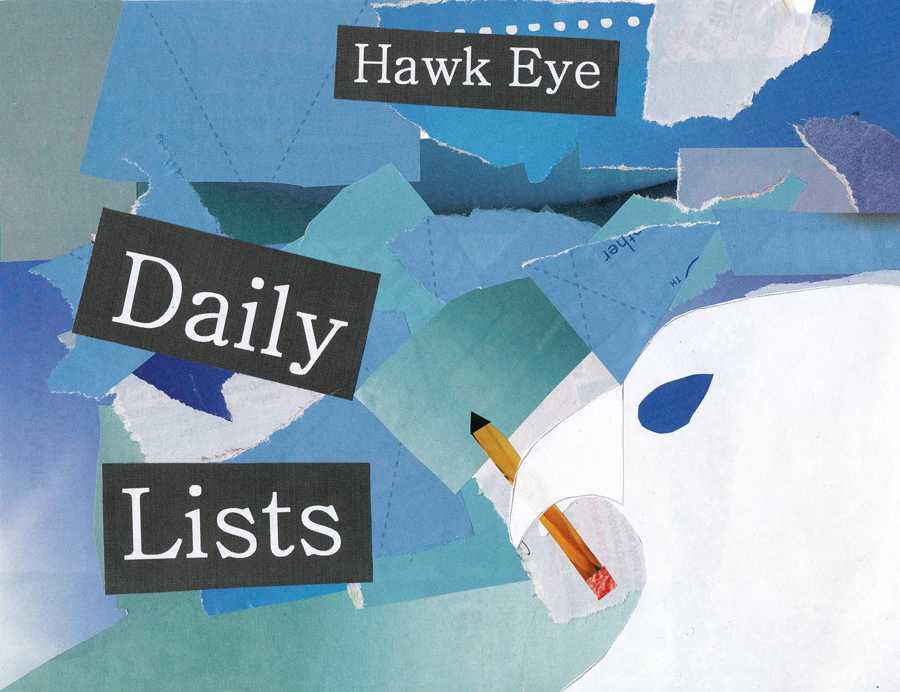[vc_row][vc_column width=”1/1″][vc_column_text]There is a big misconception about being creative. Thinking creatively and applying “creative” ideas (whether in the form of writing, drawing, etc.) is not as effortless as we would like to believe. And while some people do seem to have a more innate tie to creativity, their way of thinking is not without at least a little effort. Here are eight habits that not only creative people practice, but creative people who get stuff done. [/vc_column_text][divider line_type=”Small Line”][/vc_column][/vc_row][vc_row][vc_column width=”1/1″][vc_column_text]1. Do Nothing
Literally, do not do anything. Set some time aside for yourself to exist in the simplest way possible. Don’t scroll through your favorite social media websites, watch TV, or even read a book. Just sit with your thoughts and, if you want, music. When you wake up in the morning, don’t reach for your phone immediately. If your brain is constantly stimulated with images and information from the time you wake up to the time you go to bed, you’ll never have the room to create your own images and information. Give yourself a break.
2. Be Imperfect
In case nobody told you lately, being creative and creating art in any of its forms is hard work. It’s not an effortless connection of paper and pen and a perfect outcome. Once you give yourself the room to make mistakes, the act of creating won’t be so daunting. If you draw something that you think is garbage, ask yourself: Does it matter? Probably not. If you take yourself or your art too seriously, you run the risk of limiting yourself. If you have to, just remind yourself that you are creating because at some point in time, you thought it was fun. It’s not supposed to stop being fun. Not entirely, at least.
3. Make a work space
For any kind of productivity, it can help if you have a designated room, or corner of a room that you consistently sit down to work in. Make it a pleasant space, with things that make you feel content and comfortable. If you are unable to mount decor or art on the walls, try a ceiling installation. And when you’re done working and walk away, you don’t have to think about whatever you were doing at that spot. For DIY ceiling installation look [here].
4. Walk away
Looking at your own art can be confusing, it can be hard to differentiate between what others see and what you see. After all, you were the one who created it, you know your process and you know what is supposed to be there even if it isn’t. After looking hard enough, you will always see faults. Come back in a couple of hours or after a night of sleep. See if you still see those mistakes. Distance can be enlightening.
5. Take an actual walk
In addition to walking away from your work, you might consider actually taking a walk. Exercise works wonders. You don’t have to run a marathon. In fact, don’t run a marathon. Just look up beginner workouts on Pinterest and get crazy with it. If you come back and you still feel at a loss, you can create a piece about how much you did not like exercising.
6. Immerse yourself with natural sun light
You don’t have to work in the sunshine unless you want to (I would), but it helps mentally to be exposed to it at least once a day.
7. Write down ideas as they come
OK, this one is a little obvious, but it works. And after you’ve finished writing down your brilliant idea, write out a to-do list. Whether it’s about upcoming homework or anything else, writing out your responsibilities will leave more space in your mind to think about other things. Always nice to have more space.
8. Don’t wait for that “creative feeling”
It is of utmost importance that you do not wait for inspiration to strike like a mallet to the back of your head. If it is your goal to write a novel, you won’t finish it within the next week (unless you’re Meg Cabot), so don’t expect yourself to. Give yourself a manageable goal. One page every day or every other day is perfect! Before you know it, those pages every other day will add up. And if you sit down and discover that you have nothing, write anyway. It doesn’t have to be good, it probably won’t be good, but now words are on paper and that’s the most important part. You can always go back (you were going to go back anyway), and somewhere in the mess of words you might have come up with something you actually like. [/vc_column_text][/vc_column][/vc_row]



